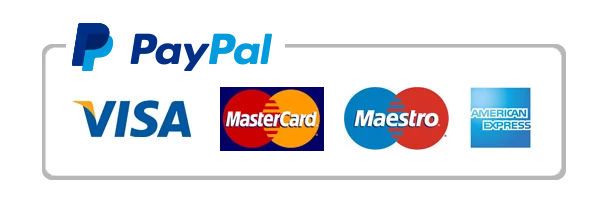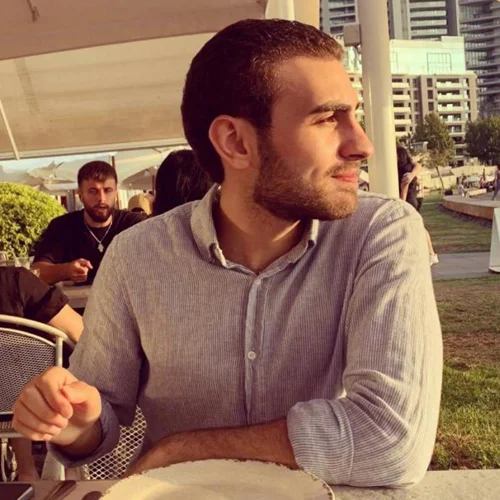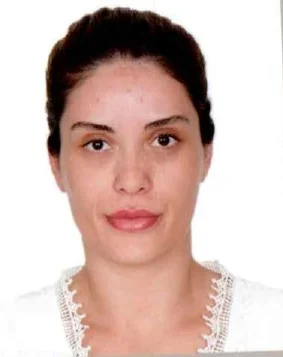Unlock Opportunities: Educational Pathways in the European Union
Exploring Diversity: Educational Insights into the European Union
The process of European Union integration is renowned for its intricacies. Several pivotal stages lie ahead following the decision to initiate accession negotiations. Here’s a brief overview of what these steps are likely to entail:
Should any additional requirements be introduced, Ukraine will need to implement them as determined by the European Council.
Subsequently, the negotiation framework will be established, delineating the parameters for discussions to ensure both sides possess a clear understanding of expectations.
The European Commission will conduct a comprehensive assessment, known as “screening,” to analyze the alignment of Ukraine’s legislation with the EU acquis.
This negotiation framework will pave the way for Ukraine to commence accession talks on the initial ‘negotiation cluster’—Fundamentals, encompassing aspects such as Justice, Fundamental Rights, and Public Procurement, among others.
It’s important to note that the EU’s legislation (acquis) comprises 35 chapters grouped into 6 ‘cluster’ categories, including Fundamentals, Internal Market, Competitiveness and Inclusive Growth, Green Agenda and Sustainable Connectivity, Resources, Agriculture, and Cohesion, and External Relations. Adhering to these clusters (and consequently, EU laws) forms the core of both the negotiations and membership itself. In essence, the candidate country aligns its laws and regulations with EU rules, a process that is thoroughly deliberated and analyzed by both parties and Aircraft Manufacturing Engineering Educational & Professional Program Bachelor Degree
Ukraine may also anticipate being granted a ‘transitionary period’ concerning certain integration conditions, allowing for some changes to Ukrainian laws to occur at a later stage, potentially even after achieving full EU membership. A similar approach was taken during the membership negotiations for Bulgaria and Romania in 2007. However, the possibility of this transitional period will be subject to discussion and political decisions throughout the negotiations between Ukraine and the EU.
What exactly do the European Union – Ukraine negotiations entail? What elements will be involved, and how lengthy might they be?
It’s crucial to clarify that labeling this phase as merely ‘negotiations’ or ‘talks’ doesn’t fully capture its essence. Essentially, this process comprises two key components:
- The European Union representatives assess the candidate’s progress concerning integration reforms. They scrutinize legislation and institutions to gauge their alignment with EU standards.
- Both sides interpret, discuss, and strategize the further implementation of these reforms, as needed. This is the crux of this stage.
As per the EU’s established principles, it’s challenging to predict the exact duration of formal membership discussions. Each candidate’s journey is unique. While some negotiations conclude within a few years, others may extend for nearly a decade. Recent instances highlight this variability, such as Croatia’s six-year negotiation period from 2005 to 2011. Bulgaria and Romania, from the commencement of accession talks to the signing of the Accession Treaty, took five years.
How robust is Ukraine’s standing as negotiations begin?
There are typically 33 segments of EU law open for negotiation, signaling that 33 categories of Ukrainian laws are in the process of aligning with EU standards.
According to the latest European Commission report, Ukraine has notably advanced in several areas compared to previous assessments. These encompass environmental protection, digital modernization, intellectual property rights, free movement of capital, among others. Ukraine’s highest ratings are in Customs Union (4 out of 5), Energy (4), Foreign Relations (4), Security and Defense Policy (4), and Digital Transformation and Media (3.5), all categorized as a “good level of preparation.”
A considerable number fall within the “moderately prepared” bracket, rated at 3 out of 5: Economic and Monetary Policy, Food Security, Scientific Development, and Freedom of Movement of Goods. The EU identifies several areas, including Ukraine’s agricultural and rural development policies, social and labor policies, freedom of movement of people, among others, as being in the early stages of preparation, classified as problematic legal chapters.
How did other countries fare during their negotiations for EU membership?
The paths to EU membership vary significantly among candidate countries. Firstly, each nation brings its unique strengths and challenges to the table. Secondly, the EU is a dynamic entity, currently engaged in discussions regarding its reforms and adjustments driven by internal dynamics. Political stances and the requisites for membership have evolved over time.
Observations from experts suggest that Ukraine’s reform progress aligns with that demonstrated by EU candidates in 2004 (such as Cyprus, the Czech Republic, Estonia, Hungary, etc.). Back then, their advancements were deemed adequate for full membership. Nevertheless, the European political landscape has undergone significant changes in these past 19 years. If these countries were to undertake membership negotiations in 2023, it’s uncertain whether they would have gained acceptance more swiftly or faced delays and On-line and off-line education opportunities in Ukraine is open for you
Moreover, each candidate country adopts a unique approach to the formal negotiations. For instance, Poland engaged over 3,000 experts in its negotiation process, solidifying a robust Polish stance in these discussions. In contrast, the negotiation teams of many other countries were comparatively more limited in size.
The EU welcomed Croatia, Bulgaria, and Romania as its recent additions, with each country having a unique path upon joining. Croatia, for instance, had to navigate the aftermath of Balkan conflicts, necessitating cooperation with the UN on prosecuting war crimes in the former Yugoslavia. Environmental legislation also posed challenges for Croatia, initially seen as incompatible with EU standards.
Bulgaria and Romania were admitted together, considered a joint entry by the Union. Despite their accession, concerns lingered about issues in judiciary reforms and combating organized crime. The EU agreed to their membership while emphasizing the need for ongoing monitoring to ensure progress in these domains. Despite a six-year negotiation period, each country’s journey was shaped by distinct political and historical contexts.
Serbia, an EU candidate, has engaged in accession talks for close to a decade. An essential condition it faces is resolving its relationship with Kosovo, a significant geopolitical challenge rooted in Balkan history. EU diplomats assert that resolving this bilateral issue is crucial for Serbia’s eventual membership.
While acknowledging Serbia’s reform efforts, the European Council emphasized the necessity for further changes, especially concerning the judiciary, fundamental rights, and freedom of expression. Concerns also arose regarding Serbia’s alignment with sanctions against Russia and Belarus, particularly after Russia’s invasion of Ukraine. The EU also highlighted the need for more significant efforts in countering foreign disinformation campaigns, considering this as an ongoing issue.
Moldova’s Path to EU Accession and Ties with Ukraine Drawing parallels to the Bulgarian and Romanian accession, both Ukraine and Moldova are presently being considered as a combined entity in terms of their journey toward EU accession. The decision to initiate accession talks for both countries simultaneously stems from the belief that they share comparable regional challenges. This approach suggests that accepting multiple ‘interconnected’ countries in a single move might be more feasible. However, it’s important to note that the negotiation processes for Moldova and Ukraine are being conducted separately.
Recent EU assessments of Moldova’s reforms commend its advancements in specific areas while highlighting persistent challenges in others. The European Commission lauds certain sectors like common policies, foreign relations, and defense as ‘moderately’ to ‘well’ progressed.
The Commission also praises electoral and democratic reforms in Moldova. However, sectors such as economic stability, minority rights, and the labor market continue to encounter difficulties.
Similar to Ukraine, Moldova’s prospects for EU negotiations and membership hinge significantly on the broader European situation, the political decisions of the EU, and notably, the full-scale Russian invasion of Ukraine. Notably, Moldova confronts its own set of Russian threats, including interference in its internal affairs and the presence of Russian occupation forces in the Transnistria region.
While some may perceive Moldova’s vulnerability to Russia as a hindrance, its potential EU accession could be interpreted as a gesture of support, potentially countering Russia’s hybrid warfare tactics.
How is Ukraine handling EU integration in wartime?
It would be fair to say that despite the war and brutal Russian aggression, Ukraine is undergoing one of the most remarkable periods of pro-European effort. Even under constant Russian shelling and with heated battles along the frontline, Ukraine has redoubled its anti-corruption campaign with dozens of high-profile investigations. It has also strengthened the National Anti-corruption Bureau up to 1,000 employees.
Daily work on reforms is being made in multiple Ukrainian institutions, including the parliament. An active dialogue is upheld with the EU to refine and improve these efforts. Progress has been noted and praised in both of the European Commission reports that have analyzed Ukraine’s move toward EU standards.
Navigating Excellence: Accredited Program in Europe
A Gateway to Quality Education
For aspiring students seeking educational opportunities beyond borders, the pursuit of an Accredited Program in Europe opens doors to a world of excellence. At Demont Educational Consultancy, we understand the importance of accreditation in ensuring a quality education for international students aiming to study in Ukraine.
Unveiling the Importance of Accreditation
Understanding Accreditation Standards
In the realm of international education, the term “accreditation” carries significant weight. When considering an Accredited Program in Europe, it’s crucial to understand the accreditation standards upheld by educational institutions. Accreditation ensures that a program meets predefined quality benchmarks, providing students with a reliable measure of educational excellence.
Quality Assurance and Global Recognition
Opting for an Accredited Program in Europe guarantees a level of quality assurance that is globally recognized. Accreditation is not only a testament to the academic rigor of a program but also facilitates seamless recognition of qualifications across borders, enhancing the value of the education received.
Benefits of Choosing an Accredited Program
Academic Rigor and Professional Relevance
An Accredited Program in Europe is designed to uphold high academic standards. The curriculum is crafted to meet industry demands, ensuring graduates are equipped with the skills and knowledge necessary for success in their chosen fields. Accredited programs often include practical components that enhance professional relevance.
Access to Financial Aid and Scholarships
Students enrolled in accredited programs may have access to a range of financial aid and scholarship opportunities. Many funding sources prioritize supporting students pursuing education in accredited institutions, making quality education more financially accessible.
Navigating Accreditation in European Countries
Accreditation Systems Across Europe
Each European country has its accreditation system, contributing to the diversity of educational offerings. When exploring options for an Accredited Program in Europe, understanding the accreditation system of the specific country is essential. Ukraine, as an example, has a robust accreditation system ensuring the quality of education provided to international students.
Recognizing International Accreditation Bodies
In addition to national accreditation, many European institutions seek accreditation from international bodies. This dual accreditation enhances the global standing of the program and assures students that the education they receive aligns with international standards.
Demont Educational Consultancy: Your Gateway to Accredited Education
Personalized Guidance for Informed Choices
At Demont Educational Consultancy, we recognize the significance of choosing an Accredited Program in Europe. Our team provides personalized guidance to help students navigate the intricacies of accreditation, ensuring they make informed decisions aligned with their academic and career goals.
Collaborations with Accredited Institutions
Demont Educational Consultancy has established partnerships with a network of accredited institutions across Europe, including Ukraine. These collaborations ensure that the students we guide have access to accredited programs that meet the highest standards of educational excellence.
Conclusion: Empowering Futures through Accreditation
In conclusion, opting for an Accredited Program in Europe is a strategic decision that empowers students with a quality education and opens doors to global opportunities. Demont Educational Consultancy is committed to guiding aspiring students on this journey, ensuring they enroll in accredited programs that lay the foundation for a successful and fulfilling academic future.
For personalized consultations and insights into pursuing an Accredited Program in Europe, Contact Demont Educational Consultancy.















